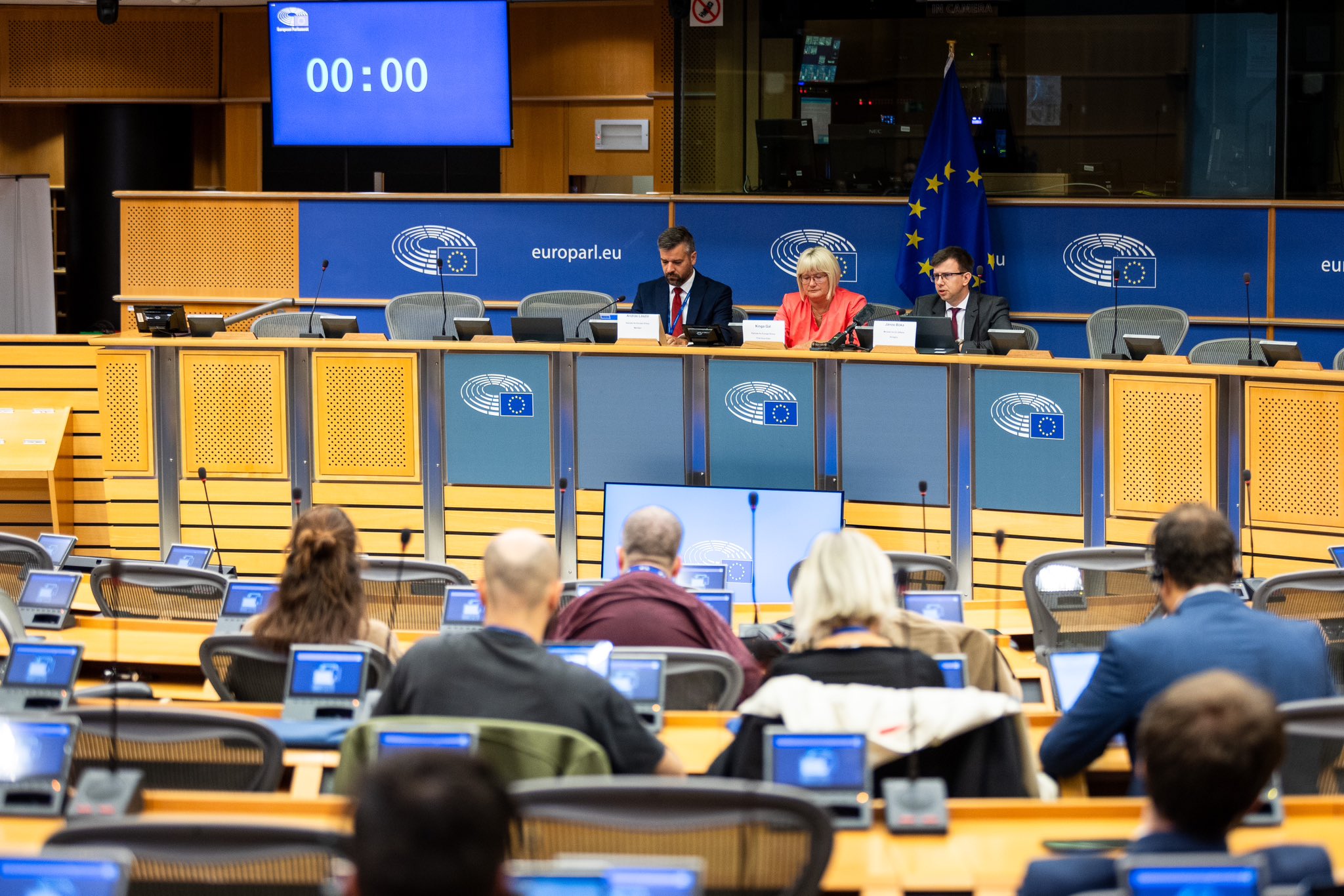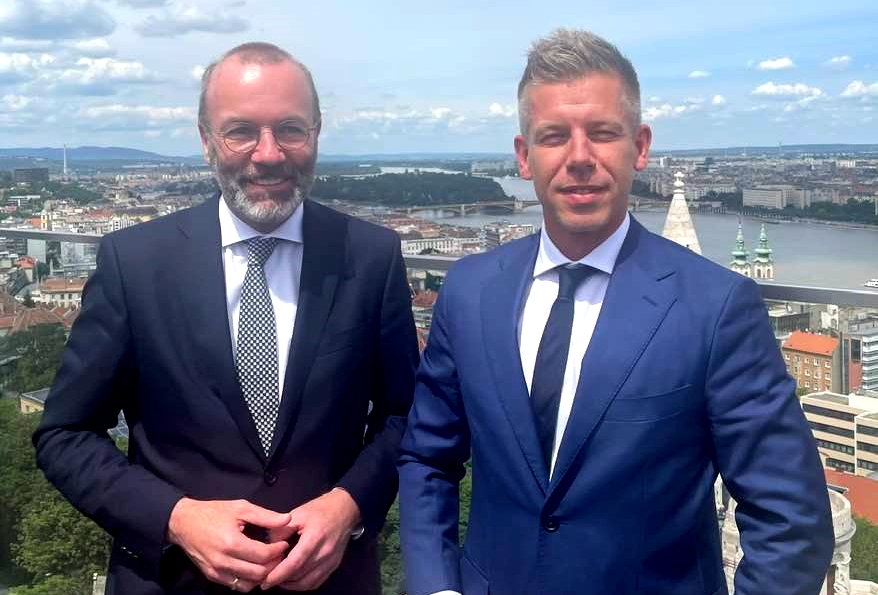
The National Card Program contains certain facilitations for employment, in line with EU rules on visa issuance and entry.Continue reading

The arbitrary exclusion of representatives of the Hungarian delegation from the European Parliament’s Committee on Civil Liberties, Justice and Home Affairs’ (LIBE) meeting on the Hungarian National Card Program was by the interpretation of many an affront to the democratic principles on which the EU was built in the past. Meetings behind closed doors discussing the decisions of sovereign national parliaments while banning the presence of those in question seems to be the new approach of ensuring uninterrupted European unity.
The meeting took place on September 4 on the behest of one of the most outspoken critics of the Hungarian government, Sweden’s Ylva Johansson. The social democrat politician, who has been the Home Affairs European Commissioner since 2019, has raised concerns over the possibility of the influx of Russian and Belorussian spies into the EU, despite the fact that most EU member states (and the UK) operate a visa system that allows citizens of said countries to enter the bloc legally. The Hungarian government had immediately reacted by documenting that the National Card program does not amount to lowering checks and requirements for applicants, yet by then political wheels have been set in motion that will without any doubt culminate in yet another rule-of-law proceedings against disobedient Hungary, and the appropriate sanctions.

File Photo: Facebook Ylva Johansson
The chain of events that lead to this are easy to trace as they follow a scenario that has been played out numerous times in past years: the Hungarian opposition media whip up a scandal over a decision of the Orbán government, “unbiased” NGOs and monitoring bodies in the country second their analysis, this is then passed on to the EU bodies through Hungarian opposition MEPs, where the European political left then fast-tracks the issue up to the European Commission for decision. The final outcome of the issue would has already been decided right at the moment of tabling the issue for inquiry by the European left, who see Viktor Orbán’s government as the arch-nemesis of European peace and solidarity.
EU Affairs Minister János Bóka reacted to the snub by saying the “LIBE Committee holds a debate with Ylva Johansson without having invited a representative of the Hungarian Government.
No interest for real dialogue in the EP. Without the participation of the Hungarian government this is just political hysteria. It is time to stop this”.
Kinga Gál, Fidesz MEP, wrote that the majority of the EP is not interested in real dialogue, pointing to the fact that János Bóka was not allowed to speak at the debate. András László, another Fidesz MEP, stressed that “it is clearly politically motivated” that the LIBE committee refused the Hungarian government’s participation in Wednesday’s meeting, despite the EP group’s request. He said that the committee put the matter on the agenda “without any particular justification, just as they refused the participation of the Hungarian government representative”.
The contempt with which the European left treats elected representatives of member states will not be lost on European citizens, and it is likely to further erode trust in the EU’s institutions. The lack of willingness to hear arguments, let alone assessing them factually, launching hearings without any legal justification, and conducting “dialogue” while banishing certain sides of the argument, all point to a severe democratic deficit engulfing the present European debate.
The European legacy media’s role is of course crucial here, as they usually fail to report such erratic behavior from ideologically allied politicians, instead they visibly highlight the allegations in large headlines thus being instrumental in whipping up anti-Hungarian sentiment throughout Europe. Reuters headlines, “Hungary visa move stokes EU fears of Russian espionage, letter shows”, with the mandatory Putin-Orbán photo, or the Financial Times’ “Hungary’s visa move opens door to Russian spies, warns largest EU party”, you guessed it, another Putin-Orbán image, leaves little room for the imagination of their readers.
As who the main beneficiary of the entire LIBE inquiry is, can be simply deducted from the fact that it is in fact not Ylva Johansson, but EPP president Manfred Weber, who seems to be the main sponsor of the ongoing “Russian Visa” charade. In his letter to European Council president Charles Michel he warned Hungary’s National Card system could “create grave loopholes for espionage activities, potentially allowing large numbers of Russians to enter Hungary with minimal supervision, posing a serious risk to national security”. Weber’s bloc, the EPP, is of course home to Hungary’s new main opposition party, TISZA, led by its party-loving president, the flamboyant Péter Magyar. He, and his opposition group have vested interest in discrediting the Orbán government via fake scandals, while
Manfred Weber, and indeed the LIBE commission, seem to be enthusiastic participants in ongoing efforts to change the government in Budapest.
To date, less than 20 working visas were granted to carefully vetted Russian and Belorussian citizens through the National Card program. In contrast, Manfred Weber’s home country, Germany, issued 40,000 visas to Russian citizens in 2023, 20,000 of these were long-term visas. In turn, Germany remains the top recipient of Russian visas issued this or last year, and is also the home to the largest Russian expat community with over 250.000 Russian citizens living in Germany. Thus Weber’s notion that the Hungarian National Card program is the main threat to European security as far as an alleged influx of spies is concerned, is far fetched. Nevertheless Péter Magyar can now rub his hands over anti-Orbán headlines across the entire European media landscape and can realistically hope for further punitive proceeding by the EC against his main domestic rival. And that is how the democracy works in the European Union today: facts are only an inconvenient distraction while you have a voting majority.
Featured Image: Facebook Péter Magyar